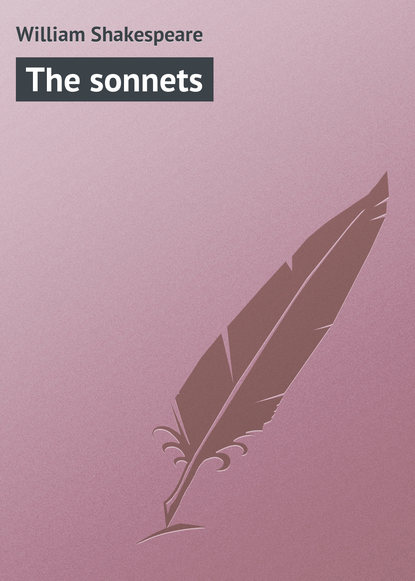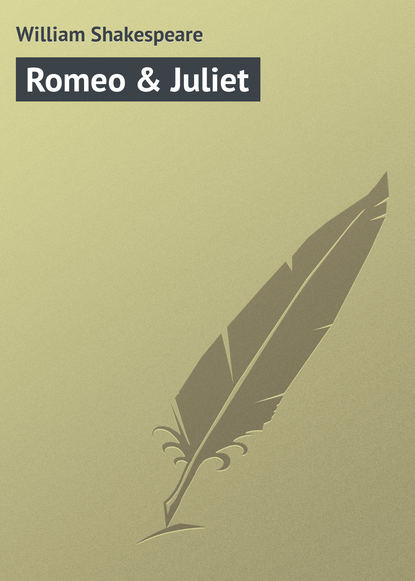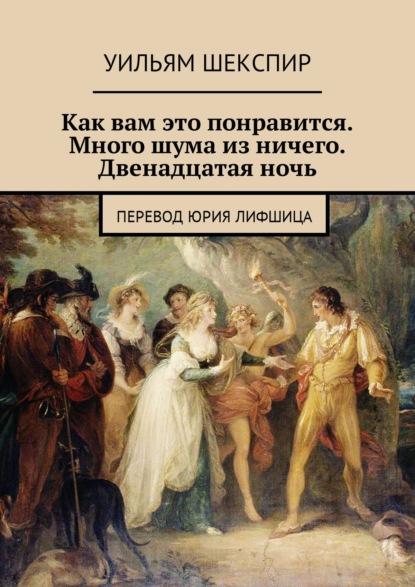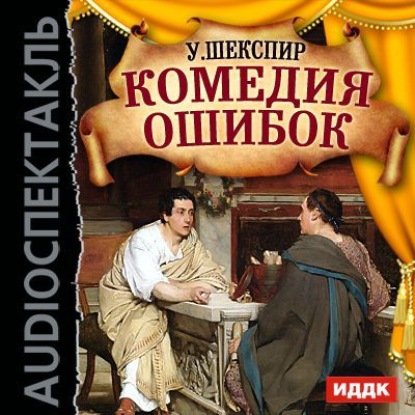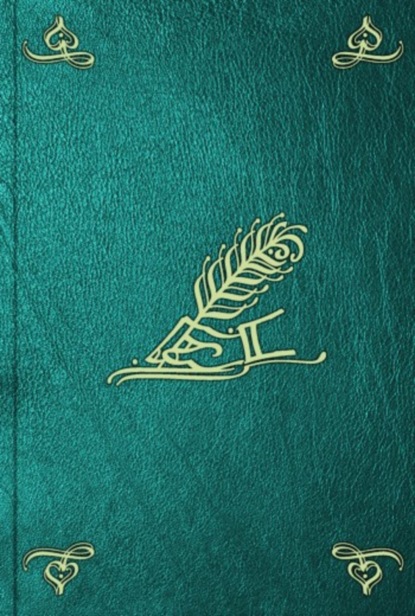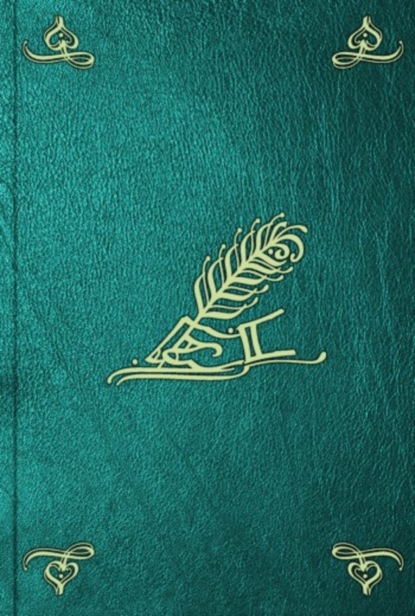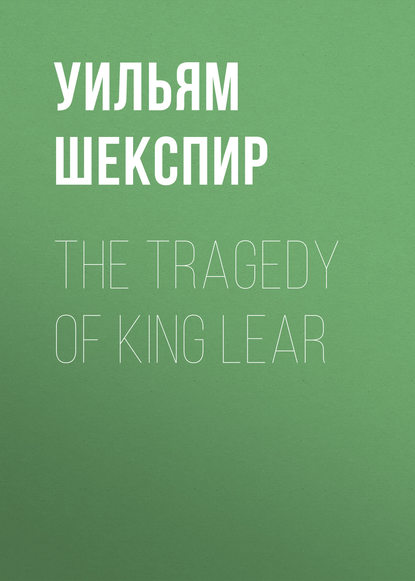 Полная версия
Полная версияПолная версия:
Уильям Шекспир The Tragedy of King Lear
- + Увеличить шрифт
- - Уменьшить шрифт

William Shakespeare
The Tragedy of King Lear
Lear, King of Britain.
King of France.
Duke of Burgundy.
Duke of Cornwall.
Duke of Albany.
Earl of Kent.
Earl of Gloucester.
Edgar, son of Gloucester.
Edmund, bastard son to Gloucester.
Curan, a courtier.
Old Man, tenant to Gloucester.
Doctor.
Lear's Fool.
Oswald, steward to Goneril.
A Captain under Edmund's command.
Gentlemen.
A Herald.
Servants to Cornwall.
Goneril, daughter to Lear.
Regan, daughter to Lear.
Cordelia, daughter to Lear.
Knights attending on Lear, Officers, Messengers, Soldiers, Attendants.
Scene: – Britain
ACT I. Scene I. [King Lear's Palace.]
Enter Kent, Gloucester, and Edmund. [Kent and Glouceste converse. Edmund stands back.]
Kent. I thought the King had more affected the Duke of Albanythan Cornwall. Glou. It did always seem so to us; but now, in the division ofthe kingdom, it appears not which of the Dukes he values most,for equalities are so weigh'd that curiosity in neither can make choice of either's moiety. Kent. Is not this your son, my lord? Glou. His breeding, sir, hath been at my charge. I have sooften blush'd to acknowledge him that now I am braz'd to't. Kent. I cannot conceive you. Glou. Sir, this young fellow's mother could; whereupon she grew round-womb'd, and had indeed, sir, a son for her cradle ereshe had a husband for her bed. Do you smell a fault? Kent. I cannot wish the fault undone, the issue of it being so proper. Glou. But I have, sir, a son by order of law, some year elderthan this, who yet is no dearer in my account. Though this knavecame something saucily into the world before he was sent for, yetwas his mother fair, there was good sport at his making, and the whoreson must be acknowledged. – Do you know this noblegentleman, Edmund? Edm. [comes forward] No, my lord. Glou. My Lord of Kent. Remember him hereafter as my honourable friend. Edm. My services to your lordship. Kent. I must love you, and sue to know you better. Edm. Sir, I shall study deserving. Glou. He hath been out nine years, and away he shall again. Sound a sennet. The King is coming.Enter one bearing a coronet; then Lear; then the Dukes of Albany and Cornwall; next, Goneril, Regan, Cordelia, with Followers Lear. Attend the lords of France and Burgundy, Gloucester. Glou. I shall, my liege.Exeunt [Gloucester and Edmund] Lear. Meantime we shall express our darker purpose. Give me the map there. Know we have divided In three our kingdom; and 'tis our fast intent To shake all cares and business from our age, Conferring them on younger strengths while we Unburthen'd crawl toward death. Our son of Cornwall, And you, our no less loving son of Albany, We have this hour a constant will to publish Our daughters' several dowers, that future strife May be prevented now. The princes, France and Burgundy, Great rivals in our youngest daughter's love, Long in our court have made their amorous sojourn, And here are to be answer'd. Tell me, my daughters (Since now we will divest us both of rule, Interest of territory, cares of state), Which of you shall we say doth love us most? That we our largest bounty may extend Where nature doth with merit challenge. Goneril, Our eldest-born, speak first. Gon. Sir, I love you more than words can wield the matter; Dearer than eyesight, space, and liberty; Beyond what can be valued, rich or rare; No less than life, with grace, health, beauty, honour; As much as child e'er lov'd, or father found; A love that makes breath poor, and speech unable. Beyond all manner of so much I love you. Cor. [aside] What shall Cordelia speak? Love, and be silent. Lear. Of all these bounds, even from this line to this, With shadowy forests and with champains rich'd, With plenteous rivers and wide-skirted meads, We make thee lady. To thine and Albany's issue Be this perpetual. – What says our second daughter, Our dearest Regan, wife to Cornwall? Speak. Reg. Sir, I am made Of the selfsame metal that my sister is, And prize me at her worth. In my true heart I find she names my very deed of love; Only she comes too short, that I profess Myself an enemy to all other joys Which the most precious square of sense possesses, And find I am alone felicitate In your dear Highness' love. Cor. [aside] Then poor Cordelia! And yet not so; since I am sure my love's More richer than my tongue. Lear. To thee and thine hereditary ever Remain this ample third of our fair kingdom, No less in space, validity, and pleasure Than that conferr'd on Goneril. – Now, our joy, Although the last, not least; to whose young love The vines of France and milk of Burgundy Strive to be interest; what can you say to draw A third more opulent than your sisters? Speak. Cor. Nothing, my lord. Lear. Nothing? Cor. Nothing. Lear. Nothing can come of nothing. Speak again. Cor. Unhappy that I am, I cannot heave My heart into my mouth. I love your Majesty According to my bond; no more nor less. Lear. How, how, Cordelia? Mend your speech a little, Lest it may mar your fortunes. Cor. Good my lord, You have begot me, bred me, lov'd me; I Return those duties back as are right fit, Obey you, love you, and most honour you. Why have my sisters husbands, if they say They love you all? Haply, when I shall wed, That lord whose hand must take my plight shall carry Half my love with him, half my care and duty. Sure I shall never marry like my sisters, To love my father all. Lear. But goes thy heart with this? Cor. Ay, good my lord. Lear. So young, and so untender? Cor. So young, my lord, and true. Lear. Let it be so! thy truth then be thy dower! For, by the sacred radiance of the sun, The mysteries of Hecate and the night; By all the operation of the orbs From whom we do exist and cease to be; Here I disclaim all my paternal care, Propinquity and property of blood, And as a stranger to my heart and me Hold thee from this for ever. The barbarous Scythian, Or he that makes his generation messes To gorge his appetite, shall to my bosom Be as well neighbour'd, pitied, and reliev'd, As thou my sometime daughter. Kent. Good my liege- Lear. Peace, Kent! Come not between the dragon and his wrath. I lov'd her most, and thought to set my rest On her kind nursery. – Hence and avoid my sight! - So be my grave my peace as here I give Her father's heart from her! Call France! Who stirs? Call Burgundy! Cornwall and Albany, With my two daughters' dowers digest this third; Let pride, which she calls plainness, marry her. I do invest you jointly in my power, Preeminence, and all the large effects That troop with majesty. Ourself, by monthly course, With reservation of an hundred knights, By you to be sustain'd, shall our abode Make with you by due turns. Only we still retain The name, and all th' additions to a king. The sway, Revenue, execution of the rest, Beloved sons, be yours; which to confirm, This coronet part betwixt you. Kent. Royal Lear, Whom I have ever honour'd as my king, Lov'd as my father, as my master follow'd, As my great patron thought on in my prayers- Lear. The bow is bent and drawn; make from the shaft. Kent. Let it fall rather, though the fork invade The region of my heart! Be Kent unmannerly When Lear is mad. What wouldst thou do, old man? Think'st thou that duty shall have dread to speak When power to flattery bows? To plainness honour's bound When majesty falls to folly. Reverse thy doom; And in thy best consideration check This hideous rashness. Answer my life my judgment, Thy youngest daughter does not love thee least, Nor are those empty-hearted whose low sound Reverbs no hollowness. Lear. Kent, on thy life, no more! Kent. My life I never held but as a pawn To wage against thine enemies; nor fear to lose it, Thy safety being the motive. Lear. Out of my sight! Kent. See better, Lear, and let me still remain The true blank of thine eye. Lear. Now by Apollo- Kent. Now by Apollo, King, Thou swear'st thy gods in vain. Lear. O vassal! miscreant! [Lays his hand on his sword.] Alb., Corn. Dear sir, forbear! Kent. Do! Kill thy physician, and the fee bestow Upon the foul disease. Revoke thy gift, Or, whilst I can vent clamour from my throat, I'll tell thee thou dost evil. Lear. Hear me, recreant! On thine allegiance, hear me! Since thou hast sought to make us break our vow- Which we durst never yet- and with strain'd pride To come between our sentence and our power, - Which nor our nature nor our place can bear, - Our potency made good, take thy reward. Five days we do allot thee for provision To shield thee from diseases of the world, And on the sixth to turn thy hated back Upon our kingdom. If, on the tenth day following, Thy banish'd trunk be found in our dominions, The moment is thy death. Away! By Jupiter, This shall not be revok'd. Kent. Fare thee well, King. Since thus thou wilt appear, Freedom lives hence, and banishment is here. [To Cordelia] The gods to their dear shelter take thee,maid, That justly think'st and hast most rightly said! [To Regan and Goneril] And your large speeches may yourdeeds approve, That good effects may spring from words of love. Thus Kent, O princes, bids you all adieu; He'll shape his old course in a country new.Exit.
Flourish. Enter Gloucester, with France and Burgundy;Attendants. Glou. Here's France and Burgundy, my noble lord. Lear. My Lord of Burgundy, We first address toward you, who with this king Hath rivall'd for our daughter. What in the least Will you require in present dower with her, Or cease your quest of love? Bur. Most royal Majesty, I crave no more than hath your Highness offer'd, Nor will you tender less. Lear. Right noble Burgundy, When she was dear to us, we did hold her so; But now her price is fall'n. Sir, there she stands. If aught within that little seeming substance, Or all of it, with our displeasure piec'd, And nothing more, may fitly like your Grace, She's there, and she is yours. Bur. I know no answer. Lear. Will you, with those infirmities she owes, Unfriended, new adopted to our hate, Dow'r'd with our curse, and stranger'd with our oath, Take her, or leave her? Bur. Pardon me, royal sir. Election makes not up on such conditions. Lear. Then leave her, sir; for, by the pow'r that made me, I tell you all her wealth. [To France] For you, great King, I would not from your love make such a stray To match you where I hate; therefore beseech you T' avert your liking a more worthier way Than on a wretch whom nature is asham'd Almost t' acknowledge hers. France. This is most strange, That she that even but now was your best object, The argument of your praise, balm of your age, Most best, most dearest, should in this trice of time Commit a thing so monstrous to dismantle So many folds of favour. Sure her offence Must be of such unnatural degree That monsters it, or your fore-vouch'd affection Fall'n into taint; which to believe of her Must be a faith that reason without miracle Should never plant in me. Cor. I yet beseech your Majesty, If for I want that glib and oily art To speak and purpose not, since what I well intend, I'll do't before I speak- that you make known It is no vicious blot, murther, or foulness, No unchaste action or dishonoured step, That hath depriv'd me of your grace and favour; But even for want of that for which I am richer- A still-soliciting eye, and such a tongue As I am glad I have not, though not to have it Hath lost me in your liking. Lear. Better thou Hadst not been born than not t' have pleas'd me better. France. Is it but this- a tardiness in nature Which often leaves the history unspoke That it intends to do? My Lord of Burgundy, What say you to the lady? Love's not love When it is mingled with regards that stands Aloof from th' entire point. Will you have her? She is herself a dowry. Bur. Royal Lear, Give but that portion which yourself propos'd, And here I take Cordelia by the hand, Duchess of Burgundy. Lear. Nothing! I have sworn; I am firm. Bur. I am sorry then you have so lost a father That you must lose a husband. Cor. Peace be with Burgundy! Since that respects of fortune are his love, I shall not be his wife. France. Fairest Cordelia, that art most rich, being poor; Most choice, forsaken; and most lov'd, despis'd! Thee and thy virtues here I seize upon. Be it lawful I take up what's cast away. Gods, gods! 'tis strange that from their cold'st neglect My love should kindle to inflam'd respect. Thy dow'rless daughter, King, thrown to my chance, Is queen of us, of ours, and our fair France. Not all the dukes in wat'rish Burgundy Can buy this unpriz'd precious maid of me. Bid them farewell, Cordelia, though unkind. Thou losest here, a better where to find. Lear. Thou hast her, France; let her be thine; for we Have no such daughter, nor shall ever see That face of hers again. Therefore be gone Without our grace, our love, our benison. Come, noble Burgundy.Flourish. Exeunt Lear, Burgundy, [Cornwall, Albany, Gloucester, and Attendants] France. Bid farewell to your sisters. Cor. The jewels of our father, with wash'd eyes Cordelia leaves you. I know you what you are; And, like a sister, am most loath to call Your faults as they are nam'd. Use well our father. To your professed bosoms I commit him; But yet, alas, stood I within his grace, I would prefer him to a better place! So farewell to you both. Gon. Prescribe not us our duties. Reg. Let your study Be to content your lord, who hath receiv'd you At fortune's alms. You have obedience scanted, And well are worth the want that you have wanted. Cor. Time shall unfold what plighted cunning hides. Who cover faults, at last shame them derides. Well may you prosper! France. Come, my fair Cordelia.Exeunt France and Cordelia Gon. Sister, it is not little I have to say of what most nearly appertains to us both. I think our father will henceto-night. Reg. That's most certain, and with you; next month with us. Gon. You see how full of changes his age is. The observation we have made of it hath not been little. He always lov'd our sister most, and with what poor judgment he hath now casther off appears too grossly. Reg. 'Tis the infirmity of his age; yet he hath ever butslenderly known himself. Gon. The best and soundest of his time hath been but rash; then must we look to receive from his age, not alone the imperfections of long-ingraffed condition, but therewithal the unruly waywardness that infirm and choleric years bringwith them. Reg. Such unconstant starts are we like to have from him asthis of Kent's banishment. Gon. There is further compliment of leave-taking between Franceand him. Pray you let's hit together. If our father carryauthority with such dispositions as he bears, this last surrender ofhis will but offend us. Reg. We shall further think on't. Gon. We must do something, and i' th' heat.ExeuntScene II. The Earl of Gloucester's Castle
Enter [Edmund the] Bastard solus, [with a letter].
Edm. Thou, Nature, art my goddess; to thy law My services are bound. Wherefore should I Stand in the plague of custom, and permit The curiosity of nations to deprive me, For that I am some twelve or fourteen moonshines Lag of a brother? Why bastard? wherefore base? When my dimensions are as well compact, My mind as generous, and my shape as true, As honest madam's issue? Why brand they us With base? with baseness? bastardy? base, base? Who, in the lusty stealth of nature, take More composition and fierce quality Than doth, within a dull, stale, tired bed, Go to th' creating a whole tribe of fops Got 'tween asleep and wake? Well then, Legitimate Edgar, I must have your land. Our father's love is to the bastard Edmund As to th' legitimate. Fine word- 'legitimate'! Well, my legitimate, if this letter speed, And my invention thrive, Edmund the base Shall top th' legitimate. I grow; I prosper. Now, gods, stand up for bastards!Enter Gloucester.
Glou. Kent banish'd thus? and France in choler parted? And the King gone to-night? subscrib'd his pow'r? Confin'd to exhibition? All this done Upon the gad? Edmund, how now? What news? Edm. So please your lordship, none. [Puts up the letter.] Glou. Why so earnestly seek you to put up that letter? Edm. I know no news, my lord. Glou. What paper were you reading? Edm. Nothing, my lord. Glou. No? What needed then that terrible dispatch of it intoyour pocket? The quality of nothing hath not such need to hide itself. Let's see. Come, if it be nothing, I shall not need spectacles. Edm. I beseech you, sir, pardon me. It is a letter from mybrother that I have not all o'er-read; and for so much as I have perus'd, I find it not fit for your o'erlooking. Glou. Give me the letter, sir. Edm. I shall offend, either to detain or give it. The contents,as in part I understand them, are to blame. Glou. Let's see, let's see! Edm. I hope, for my brother's justification, he wrote this butas an essay or taste of my virtue. Glou. (reads) 'This policy and reverence of age makes the world bitter to the best of our times; keeps our fortunes from us till our oldness cannot relish them. I begin to find an idle and fond bondage in the oppression of aged tyranny, whosways, not as it hath power, but as it is suffer'd. Come to me,that of this I may speak more. If our father would sleep till I wak'd him, you should enjoy half his revenue for ever, andlive the beloved of your brother,'EDGAR.'Hum! Conspiracy? 'Sleep till I wak'd him, you should enjoy half his revenue.' My son Edgar! Had he a hand to write this? a heart and brain to breed it in? When came this to you? Who brought it? Edm. It was not brought me, my lord: there's the cunning of it. I found it thrown in at the casement of my closet. Glou. You know the character to be your brother's? Edm. If the matter were good, my lord, I durst swear it were his; but in respect of that, I would fain think it were not. Glou. It is his. Edm. It is his hand, my lord; but I hope his heart is not in the contents. Glou. Hath he never before sounded you in this business? Edm. Never, my lord. But I have heard him oft maintain it to be fit that, sons at perfect age, and fathers declining, the father should be as ward to the son, and the son manage his revenue. Glou. O villain, villain! His very opinion in the letter! Abhorred villain! Unnatural, detested, brutish villain! worse than brutish! Go, sirrah, seek him. I'll apprehend him. Abominable villain! Where is he? Edm. I do not well know, my lord. If it shall please you to suspend your indignation against my brother till you can derive from him better testimony of his intent, you should run a certain course; where, if you violently proceed against him, mistaking his purpose, it would make a great gap in your own honour and shake in pieces the heart of his obedience. I dare pawn down my life for him that he hath writ this to feel my affection to your honour, and to no other pretence of danger. Glou. Think you so? Edm. If your honour judge it meet, I will place you where you shall hear us confer of this and by an auricular assurance have your satisfaction, and that without any further delay than this very evening. Glou. He cannot be such a monster. Edm. Nor is not, sure. Glou. To his father, that so tenderly and entirely loves him. Heaven and earth! Edmund, seek him out; wind me into him, I pray you; frame the business after your own wisdom. I would unstate myself to be in a due resolution. Edm. I will seek him, sir, presently; convey the business as I shall find means, and acquaint you withal. Glou. These late eclipses in the sun and moon portend no good to us. Though the wisdom of nature can reason it thus and thus, yet nature finds itself scourg'd by the sequent effects. Love cools, friendship falls off, brothers divide. In cities, mutinies; in countries, discord; in palaces, treason; and the bond crack'd 'twixt son and father. This villain of mine comes under the prediction; there's son against father: the King falls from bias of nature; there's father against child. We have seen the best of our time. Machinations, hollowness, treachery, and all ruinous disorders follow us disquietly to our graves. Find out this villain, Edmund; it shall lose thee nothing; do it carefully. And the noble and true-hearted Kent banish'd! his offence, honesty! 'Tis strange. Exit. Edm. This is the excellent foppery of the world, that, when we are sick in fortune, often the surfeit of our own behaviour, we make guilty of our disasters the sun, the moon, and the stars; as if we were villains on necessity; fools by heavenly compulsion; knaves, thieves, and treachers by spherical pre-dominance; drunkards, liars, and adulterers by an enforc'd obedience of planetary influence; and all that we are evil in, by a divine thrusting on. An admirable evasion of whore-master man, to lay his goatish disposition to the charge of a star! My father compounded with my mother under the Dragon's Tail, and my nativity was under Ursa Major, so that it follows I am rough and lecherous. Fut! I should have been that I am, had the maidenliest star in the firmament twinkled on my bastardizing. Edgar-
Enter Edgar.
and pat! he comes, like the catastrophe of the old comedy.My cue is villainous melancholy, with a sigh like Tom o'Bedlam. O, these eclipses do portend these divisions! Fa, sol, la,mi. Edg. How now, brother Edmund? What serious contemplation areyou in? Edm. I am thinking, brother, of a prediction I read this otherday, what should follow these eclipses. Edg. Do you busy yourself with that? Edm. I promise you, the effects he writes of succeed unhappily:as of unnaturalness between the child and the parent; death, dearth, dissolutions of ancient amities; divisions in state, menaces and maledictions against king and nobles; needless diffidences, banishment of friends, dissipation of cohorts, nuptial breaches, and I know not what. Edg. How long have you been a sectary astronomical? Edm. Come, come! When saw you my father last? Edg. The night gone by. Edm. Spake you with him? Edg. Ay, two hours together. Edm. Parted you in good terms? Found you no displeasure in himby word or countenance Edg. None at all. Edm. Bethink yourself wherein you may have offended him; and atmy entreaty forbear his presence until some little time hath qualified the heat of his displeasure, which at this instantso rageth in him that with the mischief of your person it would scarcely allay. Edg. Some villain hath done me wrong. Edm. That's my fear. I pray you have a continent forbearancetill the speed of his rage goes slower; and, as I say, retirewith me to my lodging, from whence I will fitly bring you to hear my lord speak. Pray ye, go! There's my key. If you do stirabroad, go arm'd. Edg. Arm'd, brother? Edm. Brother, I advise you to the best. Go arm'd. I am nohonest man if there be any good meaning toward you. I have told youwhat I have seen and heard; but faintly, nothing like the image and horror of it. Pray you, away! Edg. Shall I hear from you anon? Edm. I do serve you in this business.Exit Edgar A credulous father! and a brother noble, Whose nature is so far from doing harms That he suspects none; on whose foolish honesty My practices ride easy! I see the business. Let me, if not by birth, have lands by wit; All with me's meet that I can fashion fit.Exit.
